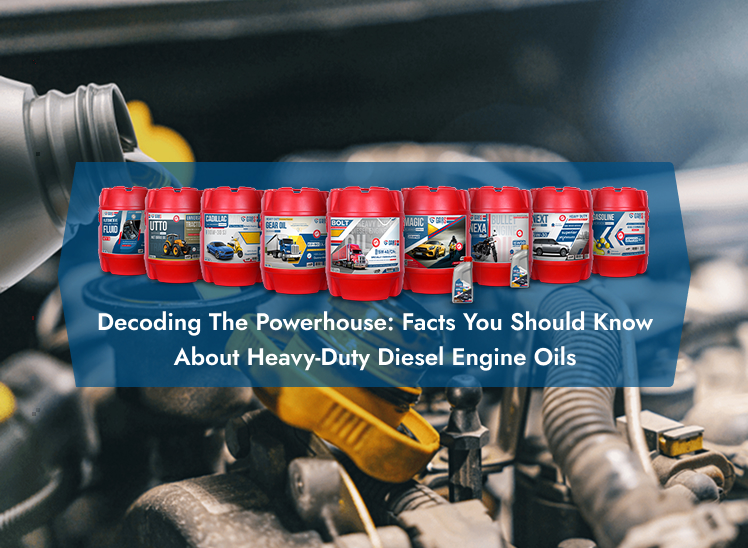Decoding The Powerhouse: Facts You Should Know About Heavy-Duty Diesel Engine Oils

Decoding The Powerhouse: Facts You Should Know About Heavy-Duty Diesel Engine Oils
Heavy-duty diesel engines serve as the backbone of industrial operations, driving everything from commercial vehicles
and public transport to industrial equipment and farming machinery. Among the critical components that ensure their
optimal performance, one often underestimated element stands out: the essential engine oil. Heavy-Duty Diesel Engine
Oils's differ substantially from those used in gasoline engines, incorporating specialized additives designed for the
intense demands of these robust engines.
Let's explore some key aspects of Heavy Duty Diesel Oil:
1. Engineered for Extreme Performance:
Diesel engines function at considerably higher compression ratios and combustion pressures compared to gasoline engines. These conditions result in elevated operating temperatures and increased mechanical stress. Heavy Duty Oil 's are specially engineered to withstand these challenging environments, delivering superior lubrication, temperature regulation, and component protection.2. Advanced Additive Technology:
The exceptional performance of Heavy-Duty Diesel Engine Oils's stems from their sophisticated additive packages. These additives deliver multiple benefits, including:- Detergents and Dispersants: These prevent harmful deposits and sludge formation that could obstruct oil pathways and compromise engine efficiency.
- Anti-Wear Additives: Components like zinc dialkyldithiophosphate (ZDDP) create protective barriers on crucial engine parts such as pistons and bearings, minimizing friction and enhancing longevity.
- Corrosion Inhibitors: These components neutralize combustion-generated acids, safeguarding against internal engine corrosion and rust formation.
- Viscosity Index Improvers: These additives ensure consistent oil thickness across varying temperature ranges, guaranteeing reliable lubrication from cold starts to peak operating temperatures.
- Antioxidants: These elements prevent oil degradation through oxidation, maintaining oil integrity and performance characteristics over time.
3. Stringent API Classifications:
The American Petroleum Institute (API) establishes rigorous performance standards for Engine Lubricants, with dedicated categories for diesel applications. These specifications evolve alongside engine technology advancements. Staying current with the latest API standards (such as CK-4, FA-4) is essential for proper oil selection and warranty maintenance.4. Versatile Viscosity Options:
Heavy-Duty Diesel Engine Oils's come in various viscosity grades, typically as multi-grade formulations (like 15W-40, 10W-30). The "W" designation refers to winter performance, while the numbers indicate viscosity characteristics at different temperatures. Choosing the right viscosity grade is vital for maximizing engine efficiency, fuel economy, and cold-weather performance. Always follow manufacturer guidelines for viscosity selection based on operating conditions.5. Low-SAPS Oils for Modern Engines:
Contemporary diesel engines are equipped with sophisticated after-treatment systems, including diesel particulate filters (DPFs) and selective catalytic reduction (SCR) technology, designed to minimize emissions. These advanced systems exhibit particular sensitivity to specific oil components, notably Sulfated Ash, Phosphorus, and Sulfur (SAPS). To maintain optimal performance of these after-treatment systems, specialized low-SAPS oils are engineered with carefully controlled levels of these elements.6. Oil Analysis: Your Engine's Health Monitor:
Implementing regular oil analysis serves as a crucial diagnostic tool for evaluating engine condition and fine-tuning maintenance schedules. A comprehensive analysis of used oil samples provides essential insights into:- Oil condition: Current viscosity levels, oxidation status, and contamination measurements.
- Engine wear: Identification of metallic particles indicating specific component deterioration.
- Coolant leaks: Presence of cooling system fluids in the oil.
- Fuel dilution: Detection of fuel contamination within the lubricant.
